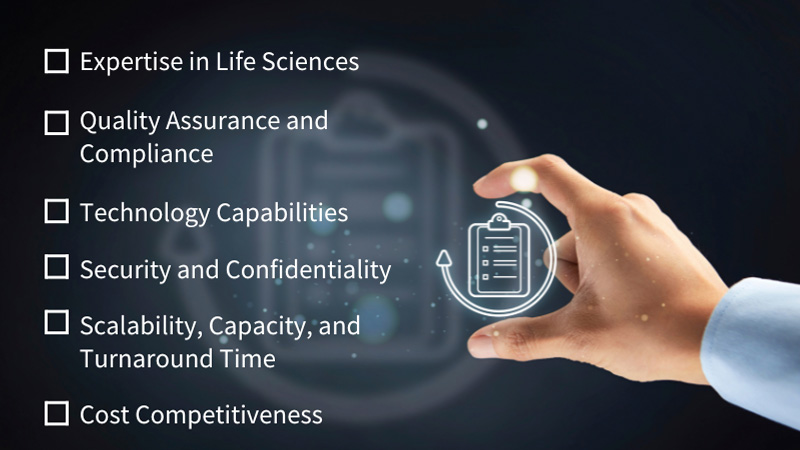
In the fast-paced and highly regulated world of Life Sciences, effective communication across diverse markets is paramount. For global Life Science companies, selecting the right translation vendors is a strategic decision that directly impacts the accuracy, compliance, and success of international ventures. Drawing upon years of experience in managing globalization teams for a prominent Life Science company, we've identified key criteria that play a pivotal role in categorizing and selecting translation vendors to meet the industry's unique needs.
One of the fundamental criteria is the vendor's deep understanding of the Life Sciences industry. Vendors must showcase a proven track record in translating highly technical content related to pharmaceuticals, biotechnology, healthcare, and medical devices. The ability to navigate complex scientific terminology and industry-specific nuances is non-negotiable. This includes having access to Subject Matter Experts (SMEs) who can provide specialized knowledge when needed.
Ensuring translations meet the highest quality standards and comply with industry regulations is imperative. Vendors must adhere to recognized standards such as ISO 17100 for translation services and ISO 13485 for medical devices. Rigorous quality assurance processes are essential to guarantee precision and regulatory compliance in every translated document.
Embracing cutting-edge translation technologies is a cornerstone criterion. Vendors should utilize advanced tools, including Translation Memory and Computer-Assisted Translation (CAT) tools. This not only ensures consistency but also enhances efficiency and cost-effectiveness in managing large-scale translation projects.
Given the sensitivity of information in the Life Sciences domain, vendors must demonstrate robust security measures and a commitment to confidentiality. Adherence to strict protocols protects proprietary data and ensures compliance with data protection regulations.
The ability to scale resources according to the annual translation volume and meet reasonable turnaround times is pivotal. Vendors must demonstrate not only current capacity but also a strategy for accommodating future growth. Scalability ensures that the vendor can meet the demands of a dynamic and expanding translation workload while ensuring timely delivery of translated materials.
While cost is a factor, it should not compromise quality. Vendors must provide transparent and competitive pricing structures. Striking a balance between cost-effectiveness and maintaining high-quality standards is essential for a successful partnership.
In conclusion, the process of categorizing and selecting life science document translations vendors involves a meticulous evaluation of their expertise, quality assurance measures, technological capabilities, security protocols, and more. By aligning with vendors who excel in these criteria, Life Science companies can confidently bridge language barriers, comply with regulations, and successfully navigate the intricacies of global communication in their industry. The right translation partners become integral contributors to the success of international endeavors, enabling seamless collaboration and understanding across diverse markets.